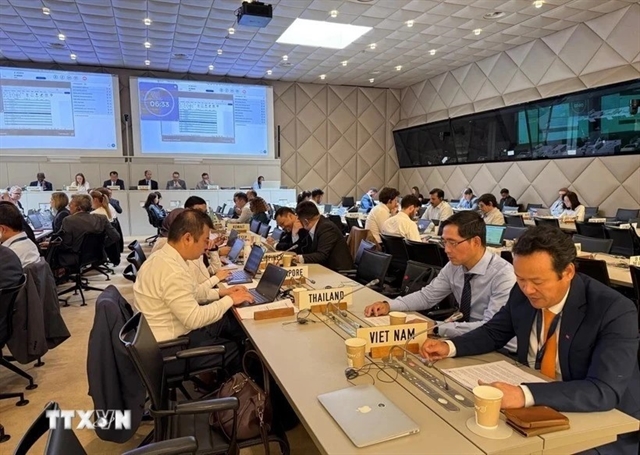Ambassador Mai Phan Dũng, head of the Vietnamese Delegation in Geneva, praised Norway’s open trade policies, highlighting its e-commerce tax data exchange system for cutting costs and easing cross-border trade.

GENEVA — Việt Nam’s Permanent Mission to Geneva lauded Norway’s transparent investment climate and digital trade strides, while pushing for deeper bilateral ties at the World Trade Organisation (WTO)’s eighth Trade Policy Review of Norway in Geneva, Switzerland on Monday.
In his speech, Ambassador Mai Phan Dũng, head of the Vietnamese Delegation in Geneva, spotlighted Norway’s open trade policies, especially its mandatory electronic data exchange through the value-added tax system for e-commerce, which reduces trade costs and streamlines cross-border commerce.
Việt Nam acknowledges Norway's commitment to sustainability and green growth, he said, citing the 2024 Sustainable Products Act and updated public procurement regulations that embed environmental, social, and governance (ESG) principles into its trade policies.
On the multilateral front, the diplomat welcomed Norway’s active engagement in WTO frameworks, from reforms related to the Agreement on Trade-Related Aspects of Intellectual Property Rights (TRIPS), climate change and environmental issues, to transparent investment screening processes.
Bilaterally, Việt Nam–Norway trade is gaining momentum, hitting US$653 million last year and $250 million in the first four months of this year, up 38.3 per cent annually. As of late April, Norway poured over $202 million into 60 valid projects spanning maritime engineering, aquaculture, renewable energy, and hi-tech manufacturing in Việt Nam.
Việt Nam welcomes Norwegian clean energy firms’ growing interest in supporting the country’s green transition and offshore wind power development, he said, adding that Việt Nam wishes to team up in areas of mutual strength, including food and consumer goods, supporting industries, marine economy and renewable energy.
Ahead of the review, Việt Nam submitted a slew of questions on regulatory frameworks to Norway, covering sanitary and phytosanitary (SPS) measures, technical trade barriers, VAT on e-commerce, tariff rate quotas, intellectual property, sustainable development, government procurement, and investment regimes. — VNS





